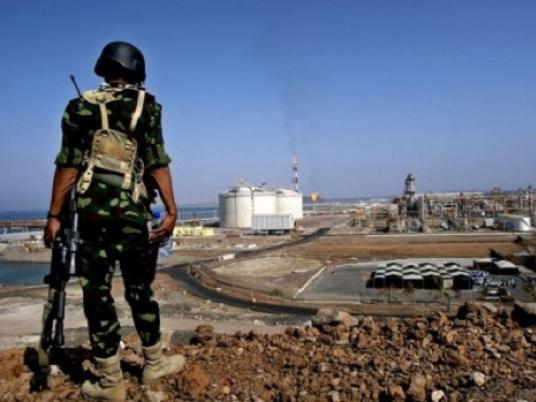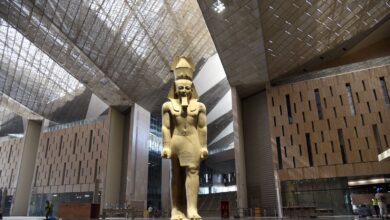
Suspected Al-Qaeda militants blew up a gas pipeline supplying Yemen's Balhaf export terminal in the Gulf of Aden, the second such attack in a month, a government official said on Monday.
"A gas pipeline was blown up near Mayfaa" in Shabwa province in southeast Yemen late on Sunday, the official said, speaking on condition of anonymity.
"Al-Qaeda blew up the pipeline in response to the raids that targeted it" over the past week, the official said.
Witnesses told AFP that flames were seen flaring into the sky from the site of the explosion that took place around midnight, some 30 minutes after soldiers guarding the pipeline clashed with a group of gunmen.
The amount of damage to the pipeline was not immediately clear and it was not known to what extent supplies of gas, from a field in Marib province, were affected.
On Saturday, Yemeni forces launched a multi-pronged assault aimed at recapturing the southern city of Zinjibar, held by the jihadists for a year.
Earlier last week, air strikes by US drones in eastern Yemen killed jihadist network leader Fahd al-Quso, wanted by Washington in connection with the 2000 bombing of the USS Cole in Aden harbour.
Quso's name figured on an FBI list of most wanted terrorists, along with a reward of up to US$5 million for information leading to his arrest
Further air strikes were launched by US drones against Al-Qaeda targets on Saturday, in which according to a tribal chief and witnesses 12 militants were killed.
The 320-kilometer pipeline linking Marib province to Balhaf, in Yemen's mostly lawless south, has been repeatedly sabotaged by Al-Qaeda.
On 26 April, the pipeline was sabotaged shortly after it was repaired following a similar March attack.
Yemen began exporting liquefied natural gas from Balhaf in 2009. French group Total has an almost 40 percent interest in the liquefication plant.
Two weeks ago, a French security official working for Total was wounded and a Yemeni soldier killed when gunmen attacked their car in Sayun in the eastern province of Hadramawt.
Al-Qaeda's branch in Yemen has exploited the decline in central government control that accompanied Arab Spring-inspired protests that eventually forced President Ali Abdullah Saleh to cede power in February.




